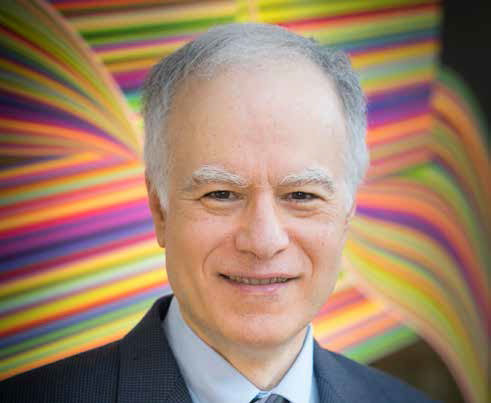Mikhail Atallah - 2017 Arden L. Bement Jr. Award

Mikhail Atallah – 2017 Arden L. Bement Jr. Award
Mikhail Atallah is a Distinguished Professor of Computer Science at Purdue University. He also is affiliated with the Center for Education and Research in Information Assurance and Security (CERIAS) and has a courtesy appointment in the School of Electrical and Computer Engineering.
He earned his Bachelor of Engineering degree in electrical engineering from American University in Beirut in 1975. He earned his Master's degree and PhD in electrical engineering and computer science from The Johns Hopkins University in 1980 and 1982, respectively. After receiving his doctorate, he came to Purdue as an assistant professor of computer science. He was named associate professor in 1986, professor in 1989 and distinguished professor in 2004.
He has published over 255 archived journal research papers and coauthored 12 books and book chapters. Atallah has been awarded eight patents. In 2001, he co-founded Arxan Technologies Inc. to commercialize a security technology he developed with doctoral student Hoi Chang. Arxan became a successful, award-winning company, and it was acquired in 2013 by TA Associates, a private equity firm. The company's technology is deployed in over 500 million devices.
Atallah has received several awards for his research and teaching, including the 2015 ACM Conference on Computer and Communications Security Test-of-Time Award, the 2013 Purdue Outstanding Commercialization Award and the Outstanding Teacher Award in the College of Science. He also is in Purdue's Book of Great Teachers and is a member of the Purdue Teaching Academy. Atallah is a fellow of both the Association for Computing Machinery and the Institute of Electrical and Electronics Engineers. He is a recipient of the Purdue Sigma Xi Faculty Research Award.
Opportunities and Perils of the Cyber Revolution
Abstract
The ongoing cyber revolution has brought many benefits, and it holds the promise of many more in the future if some critical challenges can be overcome. One of these challenges is defending against the enormous cyber threats, whose potential for future devastation far exceeds the damage done by the attacks that have already taken place. Another challenge is enhancing our ability to carry out complex computational tasks on massive data sets. Whereas the ability to carry out computations generally contributes to achieving benefits from the cyber revolution, and the impossibility of carrying out computations generally detracts from achieving those benefits, computational impossibility can be beneficial to cyber defense when it is used to build defenses whose proper functioning depends on that impossibility. The security of many widely deployed defensive mechanisms relies on the attackers' inability to solve some computationally hard problems, so that a computational breakthrough for such problems can have adverse security consequences. In this talk, Professor Atallah will discuss these issues and present his information-security research toward mitigating cyber threats and his algorithmic work toward efficiently carrying out computations on massive data sets.
Research Accomplishments
Among his many research accomplishments, Professor Atallah and his collaborators have:
- Settled a longstanding problem in data structuring for efficiently processing an important class of range queries.
- Designed a technique for key management in access hierarchies.
- Developed a divide-and-conquer technique to parallelize sequential algorithms that resulted in the first optimal parallel algorithms for a large number of geometric and combinatorial problems.
- Developed and commercialized a software protection technology that is used in millions of computing devices.
- Settled a longstanding problem in data filtering. Atallah is working on protocols to allow online collaborators to make computations that depend on confidential individual inputs without revealing any participant's input to other participants.

